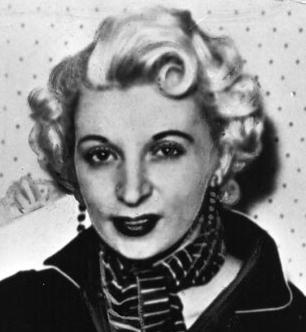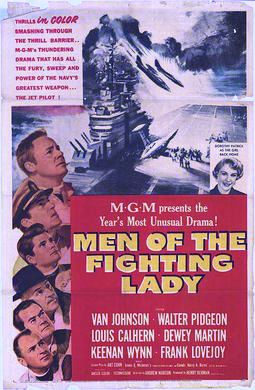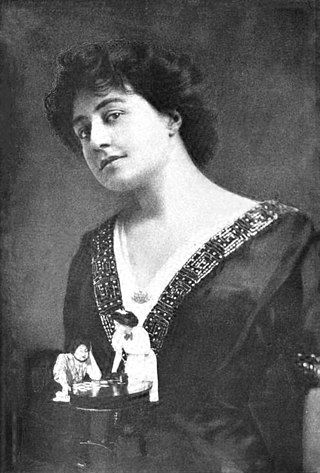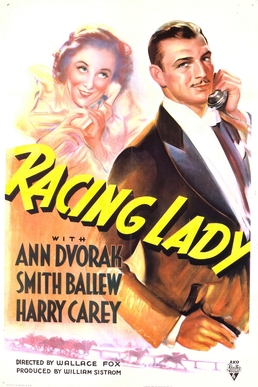
Walter Davis Pidgeon was a Canadian-American actor. A major leading man during the Golden Age of Hollywood, known for his "portrayals of men who prove both sturdy and wise," Pidgeon earned two Academy Award nominations for Best Actor, for his roles in Mrs. Miniver (1942) and Madame Curie (1943).
The following is an overview of 1927 in film, including significant events, a list of films released and notable births and deaths.

Ruth Ellis was a British nightclub hostess and convicted murderer who became the last woman to be executed in the United Kingdom following the fatal shooting of her lover, David Blakely.

Mary Stuart is a verse play by Friedrich Schiller that depicts the last days of Mary, Queen of Scots. The play consists of five acts, each divided into several scenes. The play had its première in Weimar, Germany on 14 June 1800. The play formed the basis for Donizetti's opera Maria Stuarda (1835).

Cain and Mabel is a 1936 American romantic comedy film directed by Lloyd Bacon and designed as a vehicle for Marion Davies in which she co-stars with Clark Gable. The story had been filmed before, in 1924, by William Randolph Hearst's production company, Cosmopolitan, as a silent called The Great White Way, starring Anita Stewart and Oscar Shaw. In this version, Robert Paige introduced the song "I'll Sing You a Thousand Love Songs", with music by Harry Warren and words by Al Dubin, who also wrote "Coney Island", "Here Comes Chiquita", and other songs.

The Last Time I Saw Paris is a 1954 American Technicolor film made by Metro-Goldwyn-Mayer. It is loosely based on F. Scott Fitzgerald's short story "Babylon Revisited." It was directed by Richard Brooks, produced by Jack Cummings and filmed on locations in Paris and the MGM backlot. The screenplay was by Julius J. Epstein, Philip G. Epstein and Richard Brooks.

Monsieur Beaucaire is a romantic opera in three acts, composed by André Messager. The libretto, based on the 1900 novel by Booth Tarkington, is by Frederick Lonsdale, with lyrics by Adrian Ross. The piece premiered at the Prince of Wales Theatre in Birmingham, England, on 7 April 1919, before opening at the Prince's Theatre in London under the management of Frank Curzon on 19 April 1919 and transferring to the Palace Theatre on 29 July 1919, for a successful run.

That Forsyte Woman is a 1949 American romantic drama film directed by Compton Bennett and starring Greer Garson, Errol Flynn, Walter Pidgeon, Robert Young and Janet Leigh. It is an adaptation of the 1906 novel The Man of Property, the first book in The Forsyte Saga by John Galsworthy.

Blessed Event is a 1932 American pre-Code comedy-drama film directed by Roy Del Ruth and starring Lee Tracy as a newspaper gossip columnist who becomes entangled with a gangster. The Tracy character was reportedly patterned after Walter Winchell, famous gossip columnist of the era. The film was Dick Powell's film debut.

Ruth Donnelly was an American film and stage actress.

Men of the Fighting Lady is a 1954 American war drama film directed by Andrew Marton and starring Van Johnson, Walter Pidgeon, Louis Calhern and Keenan Wynn. The screenplay was written by U.S. Navy Commander Harry A. Burns, who had written a Saturday Evening Post article, "The Case of the Blinded Pilot", an account of a U.S. Navy pilot in the Korean War, who saves a blinded Navy pilot by talking him down to a successful landing. Men of the Fighting Lady was also inspired by another Saturday Evening Post article, "The Forgotten Heroes of Korea" by James A. Michener. The original music score was composed by Miklós Rózsa. It is also known as Panther Squadron. It is not to be confused with the 1944 documentary The Fighting Lady, which was mainly filmed aboard the USS Yorktown (CV-10).

Dorothy Agnes Donnelly was an actress, playwright, librettist, producer, and director. After a decade-long acting career that included several notable roles on Broadway, she turned to writing plays, musicals and operettas, including more than a dozen on Broadway including several long-running successes. Her most famous libretto was The Student Prince (1924), in collaboration with composer Sigmund Romberg.

Resurrection Man is a 1998 Irish extreme horror period drama film, set specifically in Northern Ireland, directed by Marc Evans with a screenplay written by Eoin McNamee based on his novel of the same name. The story is loosely based on the real-life "Shankill Butchers", an Ulster loyalist gang in 1970s Belfast who conducted random killings of Catholic civilians until their leader, Lenny Murphy, was assassinated by a Provisional IRA hit squad.

Her Private Life is a surviving 1929 American pre-Code drama film directed by Alexander Korda and starring Billie Dove, Walter Pidgeon and Holmes Herbert. The plot concerns an English aristocrat who causes a scandal when she divorces her husband and runs off with a young American. The film had been considered a lost film. However, in July 2016, according to the Library of Congress, the film was found in an Italian archive.

Racing Lady is a 1937 American drama film produced by RKO Radio Pictures, which premiered in New York City on January 12, 1937, and was released nationally on January 29. Directed by Wallace Fox, the screenplay was written by Dorothy Yost, Thomas Lennon, and Cortland Fitzsimmons, based on a story by Damon Runyon, which had been further expanded by J. Robert Bren and Norman Houston.

Police Call is a 1933 Pre-code American crime drama film directed by Phil Whitman and starring Nick Stuart and Merna Kennedy.

Bella Donna is a 1934 British drama film directed by Robert Milton and starring Conrad Veidt, Mary Ellis and Cedric Hardwicke. The film is based on the 1909 novel Bella Donna by Robert Hichens which had previously been made into a 1923 American silent film Bella Donna starring Pola Negri. A further American adaptation Temptation starring Merle Oberon was produced in 1946.

'Girl Overboard' is a 1937 American mystery film directed by Sidney Salkow from a screenplay by Tristram Tupper based on a story by Sara Elizabeth Rodger. The film stars Gloria Stuart, Walter Pidgeon, and Billy Burrud, and was released on February 28, 1937.
The 2001 New Year Honours in New Zealand were appointments by Elizabeth II in her right as Queen of New Zealand, on the advice of the New Zealand government, to various orders and honours to reward and highlight good works by New Zealanders, and to celebrate the passing of 2000 and the beginning of 2001. They were announced on 30 December 2000.
The 1986 Queen's Birthday Honours in New Zealand, celebrating the official birthday of Elizabeth II, were appointments made by the Queen in her right as Queen of New Zealand, on the advice of the New Zealand government, to various orders and honours to reward and highlight good works by New Zealanders. They were announced on 14 June 1986.

















